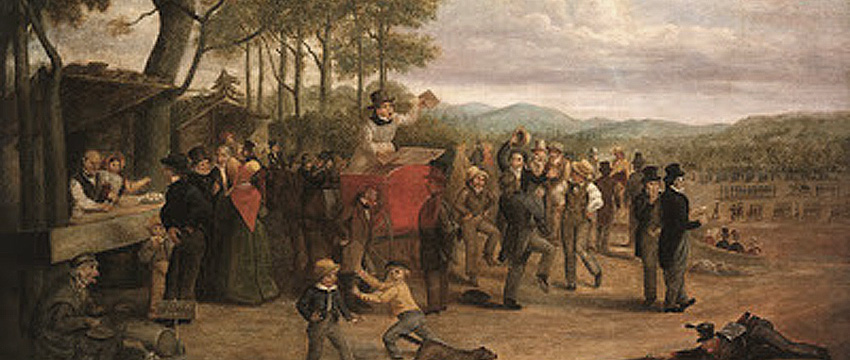Why Do We Still Read Tocqueville?

Alexis de Tocqueville’s Democracy in America, appearing in two volumes in 1835 and 1840, based on his travels with Gustave Beaumont in the new republic in 1831—up and down the east coast from Boston to New York to Philadelphia, west to the Michigan wilderness, south to New Orleans—set the template for the foreigner’s journey-through-America, particularly that of the French visitor. Not long ago both the late Jean Baudrillard and Bernard-Henri Lévy tried following in Tocqueville’s footsteps—metaphorically, if not precisely geographically—to no particular effect. But scenes, images, and talk as Tocqueville set them down still reverberate like small explosions in the common cultural imagination of the United States and France, especially when Tocqueville’s 1856 The Old Regime and the Revolution is brought into the conversation. Tocqueville looked for the limits of the Enlightenment in politics, public speech, and, especially relations between people. His work can be seen as a deep, patient, sometimes amused, sometimes awestruck attempt to understand the meaning and the historical weight of democratic manners: of how, in a democracy, as D. H. Lawrence summed it up, people meet and acknowledge one another. Far more than merely inaugurating a genre in travel writing, Tocqueville inaugurated the literary and political art of a nation interrogating itself. Since his time both France and the United States have been obsessed with who they are, what they are, and more than anything why they are, and those questions are no more settled today than they were more than 180 years ago. They may be less so.
This event is free and open to the public.
Watch the event on October 18 at 7pm EST live online here.
Françoise Mélonio is Professor at the University of Paris Sorbonne and Dean of Studies at Sciences Po. She focuses her research on European cultural and intellectual history and especially the relations between history and literature. She is responsible for the 30-volume Gallimard edition of Tocqueville’s OEuvres complètes, and, with François Furet, the two-volume University of Chicago edition of The Old Regime and the Revolution. Her books include Tocqueville and the French (University of Virginia Press, 1998), an ambitiously expansive study of Tocqueville’s influence in Europe during the 19th and 20th centuries.
Arthur Goldhammer has translated more than 120 books from the French, including a new translation of Democracy in America for the Library of America (2004), Thomas Piketty’s Capital in the 21st Century (2014), and François Furet and Mona Ozouf’s Critical
Dictionary of the French Revolution. As a student of the Enlightenment he is an affiliate of the Center for European Studies at Harvard, and writes the cant-defying blog French Politics.
Paul Berman is a senior editor of the New Republic and writes about literature and politics. His essay “The Poetry of Democracy” is collected in the anthology Tocqueville and the Frontiers of Democracy (2013). His books include A Tale of Two Utopias: The Political Journey of the Generation of 1968 (1996), the startling Power and the Idealists: Or, the Passion of Joschka Fischer and Its Aftermath (2005), and Terror and Liberalism (2003) and The Flight of the Intellectuals (2010), unflinching unravelings of Islamist ideology and left-wing apologies for terrorism.
John Rockwell served as the New York Times European cultural correspondent, classical music critic and reporter, chief rock critic, arts columnist, and dance critic, and as editor of the Sunday Arts & Leisure section. He founded the Lincoln Center Festival and was its director for its first four years. He is the author of All American Music: Composition in the Late Twentieth Century (1983), Sinatra: An American Classic (1984), The Idiots, on the Lars von Trier film
(2003), and Outsider: John Rockwell on the Arts (2006), and the editor of The Times of the Sixties (2014).

